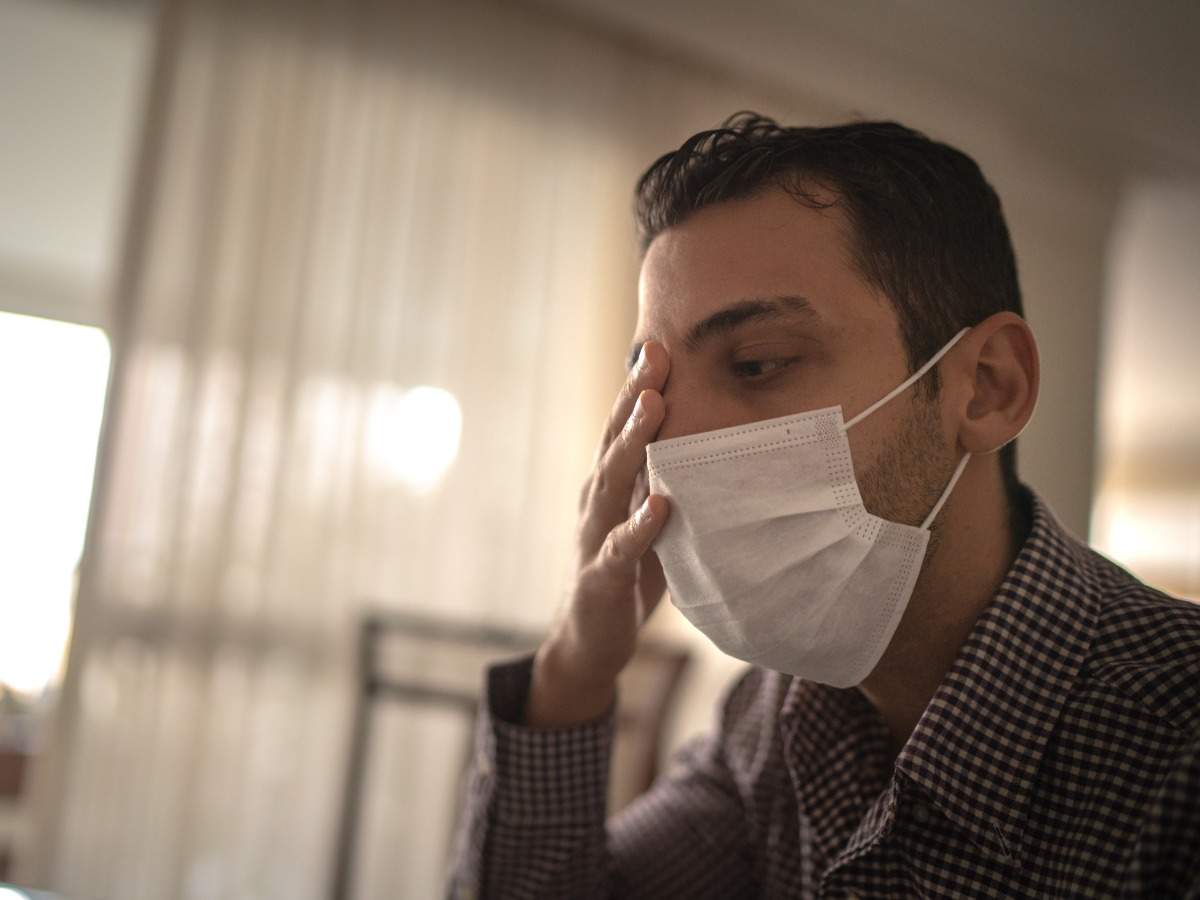Coronavirus: Study reveals 3 early signs of COVID-19 affecting your eyes - Times of India

By now we do know the scary possible ways novel coronavirus can spread to the vital organs in the body. Although the virus majorly spreads through direct contact via the nose or the mouth, another way the virus can sneak in is via the eyes. In fact, experts are now pointing out the signs of COVID-19 which can be detected by three particular symptoms which can start from the eyes.
readmore02/8How does coronavirus impact your eyes?
With ever-changing information, little attention has been given to how acute is the damage caused to the eyes. While it is not clear whether ocular transmission is a cause to be worried about, the mucous membranes, the surface of the eyes, inner eyelids can all act as possible means for the virus to collect and multiply.
The infection can also affect your vision if you touch a contaminated surface, and without proper care, go on to touch your eyes, mouth or nose. Right now, doctors believe that nearly 1-3% of people who do contract COVID will develop one or the other symptoms related to an eye infection. A study published in BMJ Ophthalmology has now also detailed key symptoms people experience in the early weeks of infection, which may also be often missed out. Therefore, apart from a cough, fever, headache, muscle pain, these should also be the signs to look for:
readmore03/8Light sensitivity
According to the widely cited BMJ study, nearly 18% of the patients in the reference group experienced sensitivity to light, which is also referred to as photophobia. The symptom can be caused when the light in a given environment is too bright and causes discomfort for the patient, which can further reduce, or make a person have distorted vision. A sudden sensitivity can also occur when there's acute inflammation in the eyes (common with COVID-19), or a foreign body is present in the uvea. It can often also be accompanied by throbbing headache and pain.
readmore04/8Itchy and sore eyes
Experiencing itchy, sore or dry eyes can also be a common symptom pointing to trouble. The study found that nearly 17% of patients had itchy eyes, while 16% experienced sore eyes. Itchiness and soreness, which can also be related to eye redness can be caused by eye infections and allergies. Excessive rubbing can further aggravate the issue. Some people may also experience symptoms like burning, redness, puffiness around the eyes, and have other allergic symptoms such as runny nose or sneezing.
readmore05/8Conjunctivitis
Multiple studies have indicated that patients with coronavirus may have a case of conjunctivitis. Conjunctivitis, or viral pink eye can cause your eyes to tear out, be wet, turn swollen and often itchy. Pink eye, very predominantly visible as a sign of trouble happens when the virus tends to infect an important tissue in the eye, known as the conjunctiva. Many doctors also feel that for a lot of patients (and even asymptomatic ones), pink eye or redness in the eyes, which can irritate vision may be "the single most important" symptom of coronavirus. Hence, timely attention must be paid to your eyes.
readmore06/8Should spotting a pink eye be the sole reason to worry?
Since the appearance of pink eyes is considered a primary COVID-19 symptom, people can be worried. However, a sole pink eye spotting shouldn't be a reason to worry or panic. Sometimes, seasonal allergies, or other illnesses. So, how can you pinpoint the difference and consider seeking help?
What doctors have observed right now is that eye irritation and infection seem to happen in the first week of contracting COVID-19. Viral conjunctivitis, such as the one seen with COVID-19 also tends to affect a single eye, unlike normal conjunctivitis. A person can also experience other symptoms such as fever, sneezing, coughing along eye irritation, which may signal the need to take a COVID-19 test.
If your unusual bout of eye irritation accompanies classic (and other less typical) COVID-19 signs, contact a medical professional immediately.
readmore07/8Can COVID-19 cause permanent damage to the vision?
Right now, there have been no reported cases of permanent vision impairment or problems to the eyes in cases of severe COVID-19. One of the complications associated with severe COVID-19 infestation is oxygen deprivation and blood clotting. Oxygen deprivation, can, at times cause damage to the metabolically active tissues, including ocular nerve and cells. Thus, if any permanent damage to the eyes is possible, it can be a result of oxygen loss, and not the virus itself. However, it should also be noted that ocular problems are also commonly seen as a sign in hospitalized patients. A study in JAMA Opthalmology observed that 1/3rd of hospitalized COVID-19 patients suffered from one or more symptoms of vision problems.
readmore08/8How can you prevent risk factors? Can wearing glasses protect you?
It should be noted that diabetic patients, the ones who are prone to eye infections and sensitivity should be extremely diligent. Proper prevention and care can not just cut your risk of eye infection, it can also lower transmission risk.
There are also studies that have observed that wearing glasses could protect people from developing eye symptoms related to the infection, or contract the virus in the first place. The ones who use contact lenses may have a slightly higher risk if they are not too careful about hand hygiene and disinfection. Glasses, on the other hand, can minimize contact and serve as a preventive barrier before you touch your eyes.
Avoid touching contaminated surfaces, and getting dirty hands in touch with the eyes. This is one of the primary causes of infection. If you suspect problems, there are a lot of home remedies you can try to manage and relieve eye irritation. However, keep in mind that it's also important to quarantine and seek help if you develop additional symptoms since even the slightest risk factor can prove costly.
readmore
Comments
Post a Comment